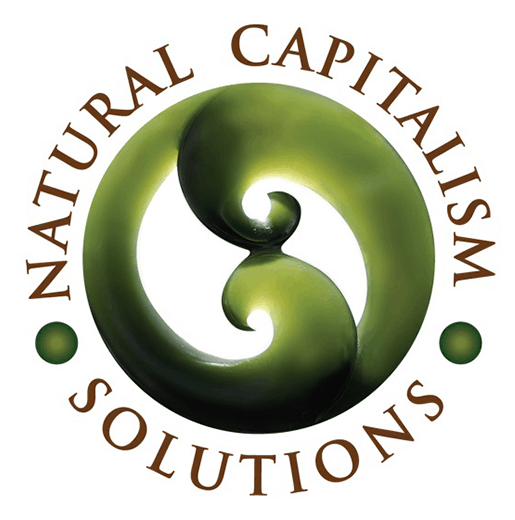[fusion_builder_container hundred_percent=”yes” overflow=”visible”][fusion_builder_row][fusion_builder_column type=”1_1″ background_position=”left top” background_color=”” border_size=”” border_color=”” border_style=”solid” spacing=”yes” background_image=”” background_repeat=”no-repeat” padding=”” margin_top=”0px” margin_bottom=”0px” class=”” id=”” animation_type=”” animation_speed=”0.3″ animation_direction=”left” hide_on_mobile=”no” center_content=”no” min_height=”none”]

The Guardian
17 January 2014
by L. Hunter Lovins
It’s become weirdly fashionable to criticise companies cutting their impact on the environment and implementing more sustainable practices as insufficient.
A recent piece by Charles Eisenstein claimed: “Let’s be honest: real sustainability may not make business sense.”
That’s just wrong. More than 50 studies (PDF) from the likes of those wild-eyed environmentalists at Goldman Sachs show that the companies that are the leaders in environment, social and good governance policies are financially outperforming their less sustainable peers. Sustainability is better business –and we can prove it.
Richard Smith in “Green Capitalism: The God That Failed”, gets it even more wrong. He asserts: “The results are in: no amount of ‘green capitalism’ will be able to ensure the profound changes we must urgently make to prevent the collapse of civilisation from the catastrophic impacts of global warming.” He calls for “abolition of capitalist private property in the means of production and the institution of collective bottom-up democratic control over the economy and society.”
Eisenstein’s critique stems from not believing corporate masters are sufficiently spiritual for his taste. I’d argue he’d be surprised at the deep sense of stewardship with which many approach their sustainability commitments. Smith’s Marxist aversion to any form of capitalism makes his assertions silly. It’s easy to pick outrageous corporate behaviour and allege that no form of capitalism can deliver a world that, in Bucky Fuller’s words, “works for 100% of humanity”. Conversely, it would be equally easy to cite decades of environmental and human rights travesties perpetrated by communist governments.
Verbal ping-pong like this reminds me of David Brower’s observation that when the environmental movement is in trouble it circles the wagons and shoots in.
The interesting question that neither critic tackles is that without serious corporate action to implement more sustainable practices, what is it going to take to solve the challenges threatening life as we know it?
Rick Ridgeway of Patagonia eloquently describes the temptation to despair, noting that, despite the world’s largest companies implementing more sustainable practices, “every global indicator of the health of our planet has continued to trend in the wrong direction”.
We’ve often asked each other: what is a strategy of change that can tackle the gnarly challenges fast enough to make a difference? That said, Rick’s sticking with Patagonia, and serves with me on the sustainability advisory board of Unilever North America.
Are companies doing enough? Of course not. Do we need government involvement? Of course, and it would be nice if we had functional governments. None of us are doing enough. But, without the sustainability commitments of companies, we’d be in far worse shape.
Smith challenges business advocates to come up with a plan. OK, here’s one.
In my book, The Way Out: Kickstarting Capitalism to Save Our Economic Ass, I argue that we should assume climate chaos is a hoax. Because we know how to solve it at a profit, doing it will make you a lot of money. If it turns out to be the most serious problem facing humanity, solving it will still make a lot of money. Either way, let’s go. We can argue over the science later. WWF and CDP showed that, if businesses cut carbon emissions by an average of 3% annually, they’d save up to $190bn in 2020 alone, or $780bn over 10 years. McKinsey agrees, but puts the number to be saved eliminating carbon waste at $2.9tn annually.
Let’s entrepreneur our way out. Some of my graduates created a company, Eos Climate, to turn refrigerant gasses from particularly nasty greenhouse drivers to corporate assets, worth tracking in a chain of custody, recycling and ultimately destroying. Every step saves or makes money. Doing it would cut 17 giga-tons of carbon equivalent per year from the US economy, precisely the amount we need to get back to 350 parts per million CO2 concentration.
Or Jigar Shah‘s call to entrepreneur 100 businesses of $100m in renewable energy for a $10tn economy, displacing that 17 giga-tons.
All this buys time to enable us to implement what my investor friend John Fullerton calls the regenerative economy. His Capital Institute’s Field Guide to Investing in a Regenerative Economy profiles better businesses that are truly regenerative.
I’ll stake a wager that over the next decade companies will do more to cut carbon emissions than advocates for enhanced consciousness or collective governance. It’s irresponsible to reject opportunities to cut environmental impact and enhance human wellbeing simply because they boost business metrics. It’s fine to argue for alternative politics or greater compassion, but, for those of us in the trenches, I’ll take my spirituality in a more applied form and a good capitalist over a bureaucrat any day.[/fusion_builder_column][/fusion_builder_row][/fusion_builder_container]

Leave a Reply